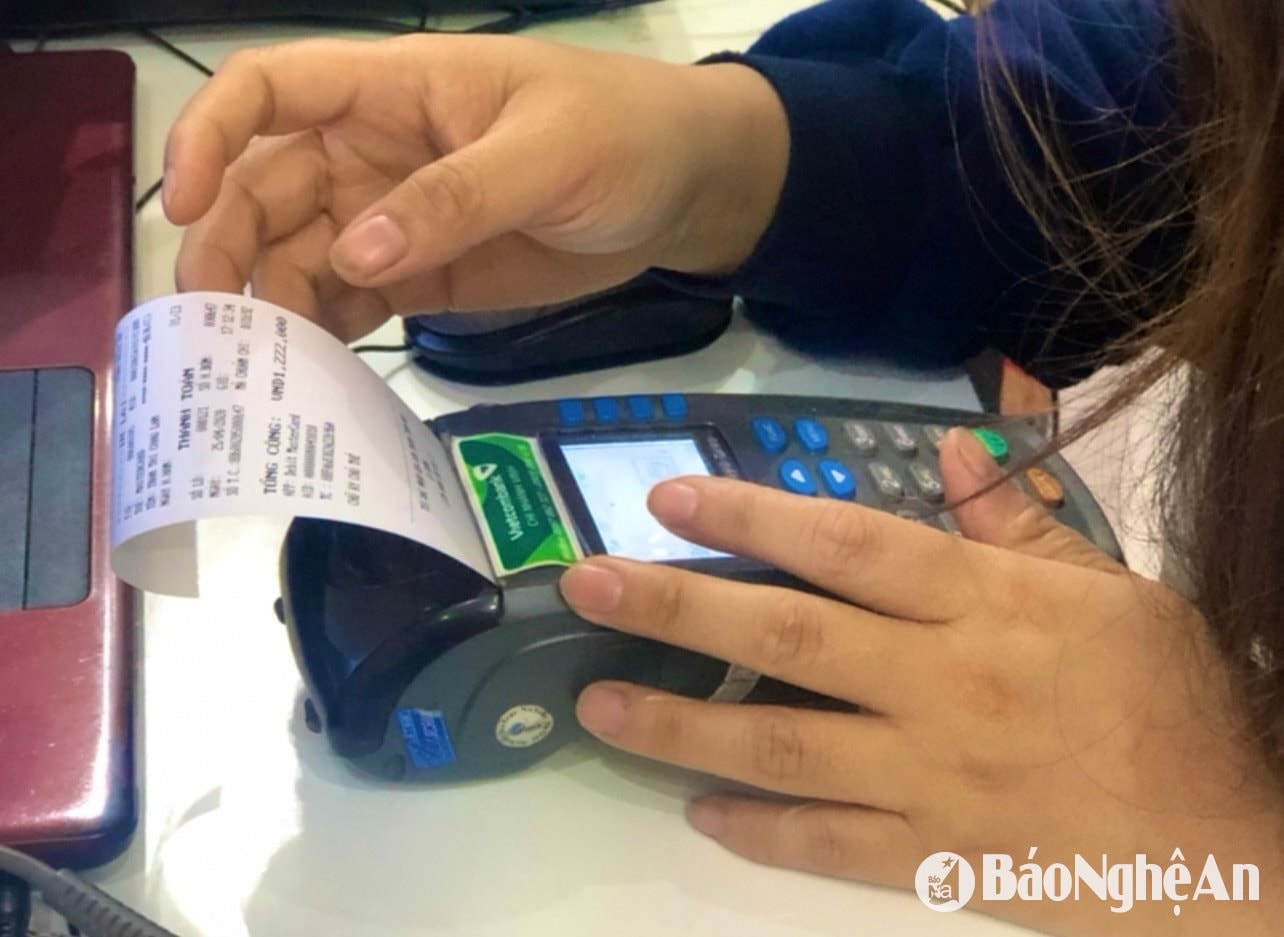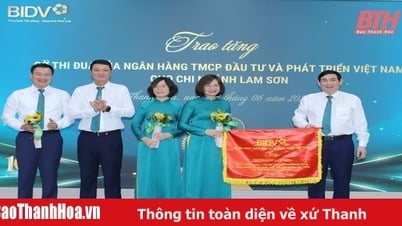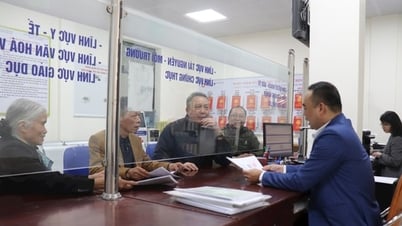New legal bases
With the goal of maximally simplifying the accounting and tax regime for business households, and at the same time aiming to convert business households into enterprises, the Ministry of Finance and the Tax Department have issued many important legal documents.
Mr. Nguyen Dinh Duc - Head of Tax Department of Region X said: On June 1, 2025, the Director of the Tax Department issued Official Dispatch No. 72/CD-CT to guide and direct the affiliated Tax Departments to implement Circular 31/2025 and Circular 32/2025 of the Ministry of Finance, effective from June 1, 2025.
Specifically: Circular 31/2025 amends and supplements a number of articles of Circular 23/2021/TT-BTC, guiding the printing, issuance, management and use of electronic stamps for alcohol and tobacco; Circular 32/2025 guiding the implementation of a number of articles of the Law on Tax Administration; Decree 123/2020/ND-CP and Decree 70/2025/ND-CP on invoices and documents.
To ensure the synchronous and effective implementation of the new regulations, the telegram requires tax branches to disseminate the new regulations to tax officials and taxpayers, especially business households with revenue of 1 billion VND/year or more.
Accordingly, the Tax Department and business households prepare the necessary conditions to review and deploy electronic invoices generated from cash registers and manage electronic stamps according to new regulations. In addition, support taxpayers to set up support teams, respond quickly to resolve problems and support business households in the process of installing, using cash registers and implementing electronic invoices.

The Tax Department also requires the Sub-Departments to strengthen inspection and supervision of the implementation of new regulations at their affiliated units, ensuring compliance with legal regulations. Report on implementation progress; periodically report on implementation progress and difficulties and problems during the implementation process to promptly take measures to handle them.
Official dispatch No. 72/CD-CT emphasizes the importance of timely and effective implementation of new regulations to improve tax management efficiency, ensuring fairness and transparency in business activities from June 1, 2025.
In response to the requirements of Official Dispatch No. 72/2025 issued by the Tax Department, along with new regulations in the Law on Tax Administration, business households – especially those with revenue of VND 1 billion/year or more – are facing a series of important legal and technical obligations.

To ensure smooth production and business operations, first of all, business households need to review and re-determine their actual total revenue in 2024 and the first months of 2025. If revenue exceeds VND 1 billion/year, the household is no longer subject to paying taxes under the lump-sum method but is forced to switch to declaring taxes under the direct method on actual revenue and expenses, applying value added tax (VAT) and personal income tax according to regulations. This is a fundamental change, entailing a series of requirements on financial transparency, accounting and invoice use.
In particular, according to the new regulations in Decree 70/2025/ND-CP (amending and supplementing a number of articles of Decree 123/2020 regulating invoices and documents), business households with revenue of 1 billion VND/year or more will no longer be able to apply the lump-sum tax method but must declare taxes directly. This conversion means that business households must fully apply the regulations on value added tax (VAT) and personal income tax (PIT), subject to supervision from the Tax authority.
The owner of a restaurant in Vinh city was surprised when he received a notice and training invitation from the Tax Department, then heard about the regulations and had a telecommunications unit come to install a cash register with invoices. The restaurant owner said: We were very surprised by the regulations of the State, now we have to get used to entering the output and input goods into the computer, and practice issuing electronic invoices to ensure the requirements of the Tax sector. In Vinh city, after checking, 400 business households with revenue of 1 billion VND or more/year have been trained by the Tax sector on specific steps.
Important note for business households
One of the major changes is that businesses with revenue of over 1 billion VND must use electronic invoices generated from cash registers with real-time data transmission to the tax authority. This is different from before when businesses could choose between electronic invoices or paper invoices.
Cash registers used must meet technical standards announced by the Tax Department and be capable of creating, storing and transmitting electronic invoices securely and transparently. This regulation aims to minimize tax fraud, increase transparency in transactions, and help tax authorities manage business households' revenue more accurately and promptly.
Cash registers must meet the technical standards announced by the Tax Department. Although households that have registered for electronic invoices before June 1 are not required to use cash registers immediately, the conversion is inevitable according to the roadmap. Therefore, it is necessary to proactively choose equipment, learn how to use it and receive guidance from the tax authority. Currently, the Tax Department has also provided business households with instructions on some suitable cash registers on the websites of the Tax Departments of the regions.
.jpeg)
The Tax Department notes that in order to immediately catch up and conduct normal business, business households need to take inventory of debts, inventories, record all assets, and input costs - because from now on, all costs that want to be validly calculated when settling taxes must have full input invoices.
It is not as simple as before, importing goods, selling goods, paying, buying goods. Now when importing goods, business households have to sit in front of the computer to enter all goods in, goods out, have to get used to calculating and clearly showing VAT on sales invoices to customers, know how to calculate VAT to avoid losses. To meet that requirement, households either need to equip themselves with basic accounting skills, or choose to use professional accounting services to ensure no violations.
In this context, medium and large-sized business households should also consider converting to enterprises. When operating in the form of a company, households not only have access to many business cooperation opportunities and easier bank loans, but can also take advantage of tax incentives, policies supporting digital transformation, e-commerce, etc. This also contributes significantly to the process of modernizing the economy , making the individual household sector transparent - which accounts for a large proportion but management is still fragmented.

Source: https://baonghean.vn/buoc-chuyen-lon-cua-ho-kinh-doanh-tu-thang-6-10299191.html
























































































![[OCOP REVIEW] Tu Duyen Syrup - The essence of herbs from the mountains and forests of Nhu Thanh](https://vphoto.vietnam.vn/thumb/402x226/vietnam/resource/IMAGE/2025/6/5/58ca32fce4ec44039e444fbfae7e75ec)






Comment (0)